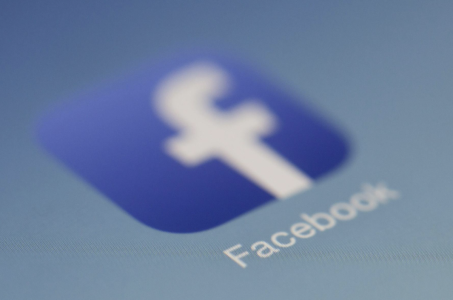Your Facebook payout is finally here—did you get your share of the $725 million settlement?
By
Veronica E.
- Replies 0
If you spent time on Facebook between May 24, 2007, and December 22, 2022—whether to post a photo, reconnect with old classmates, or simply scroll through updates—you may have a small cash payout coming your way.
After months of delays, the long-awaited settlement linked to Facebook’s massive privacy lawsuit is finally reaching eligible users.
The payments are part of a historic $725 million class-action resolution, one of the largest of its kind involving digital privacy in the US.
While the average payout won’t cover a vacation, it’s a noteworthy moment in the broader fight to protect personal data.
So what exactly happened, and how do you know if you’re getting paid?
Why Facebook is sending out payments
The payments stem from a sweeping class-action lawsuit against Facebook’s parent company, Meta, which was accused of allowing user data to be accessed and misused without proper oversight.
At the center of the case was the 2018 Cambridge Analytica scandal, in which a political consulting firm improperly obtained Facebook users’ personal information for targeted ads.
But the lawsuit went beyond that one incident.
It alleged Facebook repeatedly shared data with third-party apps and partners—even when users believed their information was private.
The case claimed the platform failed to enforce its own rules around data privacy.
Many users were unaware their likes, interests, and sometimes even messages were being collected and repurposed.
In settling the case, Meta did not admit wrongdoing but agreed to pay out hundreds of millions to resolve the claims.
Also read: You could be owed money from this $3.4 million privacy settlement—no receipts needed
Who’s eligible—and how much are they getting?
If you were a Facebook user living in the US at any point during that 15-year window, you were eligible to file a claim—even if you’ve since deleted your account.
In total, over 28 million people submitted claims, making this the largest internet privacy class action in US history.
After deducting legal and administrative fees from the $725 million pool, the remaining funds are being distributed based on how long each person used Facebook.
The average payout is around $30, though those who had active accounts for more years may receive more.
A points-based system was used, awarding one point per active month, meaning longtime users are set to receive a larger portion of the funds.
The eight named plaintiffs who helped lead the case will each receive $15,000.
For everyone else, the payout may be modest—but it’s a small reward for years of scrolling, posting, and unknowingly sharing data.
Also read: Could you be owed part of a $4.25 million settlement? Here’s how to claim up to $5,000 before October 30
When payments are arriving
Angeion, the official settlement administrator, began distributing payments on September 3, 2025, and will continue issuing them over the course of ten weeks.
If you filed a valid claim, you should receive a notification email a few days before your payment is sent.
Payment methods vary depending on the option you chose during the filing process—either check, direct deposit, PayPal, Venmo, or another digital service.
If your inbox looks a little fuller than usual, don’t be too quick to delete anything that seems like spam.
These notification emails are the real deal.
If you haven’t received yours yet, don’t worry.
Given the scale of this settlement, the rollout is happening in stages. It may take several more weeks for your payment to arrive.
Also read: Get your slice of a $3.6 million settlement—no receipts required
How class-action lawsuits work
In case you’re unfamiliar with class-action settlements, here’s a quick explanation.
When a company is accused of wrongdoing that affects a large group of people, a lawsuit can be filed on behalf of the entire group—called a "class."
If the case results in a settlement, the company typically pays a large sum that is distributed among all eligible individuals.
Class-action lawsuits are common in cases involving corporate negligence, deceptive marketing, product safety issues, or data privacy violations.
While individual payouts are usually small, these cases allow regular people to hold large companies accountable.
Also read: Privacy warning: These popular apps may be tracking you right now
How to protect your data going forward
Even if your $30 payment isn’t life-changing, it serves as a reminder of how valuable—and vulnerable—your digital footprint can be.
The Facebook case has raised awareness about how online data is collected, shared, and sometimes abused.
To help protect yourself online, consider taking these steps:
Also read: Protect your privacy: 7 things you should not share online
Other settlements you might be eligible for
Facebook’s payout isn’t the only one.
Dozens of other class-action settlements are currently open, covering everything from product pricing issues to security breaches at banks and retailers.
Some pay just a few dollars, while others can result in hundreds or even thousands.
Websites like ClassAction.org and TopClassActions.com regularly post updates on new settlements and deadlines.
It’s worth checking now and then—you may be owed more than you think!
Read next: Google ordered to pay $425 million for secretly tracking smartphones—what it means for your privacy

Have you spotted your payment in your inbox or mail? Were you surprised by the amount—or still waiting to hear back? And now that this case is wrapping up, do you feel any differently about how your data is handled online?
Drop your thoughts in the comments. The GrayVine community always appreciates smart insights and helpful tips from readers like you. Whether it’s about Facebook, online safety, or other settlements worth watching, we’d love to hear your experience!
After months of delays, the long-awaited settlement linked to Facebook’s massive privacy lawsuit is finally reaching eligible users.
The payments are part of a historic $725 million class-action resolution, one of the largest of its kind involving digital privacy in the US.
While the average payout won’t cover a vacation, it’s a noteworthy moment in the broader fight to protect personal data.
So what exactly happened, and how do you know if you’re getting paid?
Why Facebook is sending out payments
The payments stem from a sweeping class-action lawsuit against Facebook’s parent company, Meta, which was accused of allowing user data to be accessed and misused without proper oversight.
At the center of the case was the 2018 Cambridge Analytica scandal, in which a political consulting firm improperly obtained Facebook users’ personal information for targeted ads.
But the lawsuit went beyond that one incident.
It alleged Facebook repeatedly shared data with third-party apps and partners—even when users believed their information was private.
The case claimed the platform failed to enforce its own rules around data privacy.
Many users were unaware their likes, interests, and sometimes even messages were being collected and repurposed.
In settling the case, Meta did not admit wrongdoing but agreed to pay out hundreds of millions to resolve the claims.
Also read: You could be owed money from this $3.4 million privacy settlement—no receipts needed
Who’s eligible—and how much are they getting?
If you were a Facebook user living in the US at any point during that 15-year window, you were eligible to file a claim—even if you’ve since deleted your account.
In total, over 28 million people submitted claims, making this the largest internet privacy class action in US history.
After deducting legal and administrative fees from the $725 million pool, the remaining funds are being distributed based on how long each person used Facebook.
The average payout is around $30, though those who had active accounts for more years may receive more.
A points-based system was used, awarding one point per active month, meaning longtime users are set to receive a larger portion of the funds.
The eight named plaintiffs who helped lead the case will each receive $15,000.
For everyone else, the payout may be modest—but it’s a small reward for years of scrolling, posting, and unknowingly sharing data.
Also read: Could you be owed part of a $4.25 million settlement? Here’s how to claim up to $5,000 before October 30
When payments are arriving
Angeion, the official settlement administrator, began distributing payments on September 3, 2025, and will continue issuing them over the course of ten weeks.
If you filed a valid claim, you should receive a notification email a few days before your payment is sent.
Payment methods vary depending on the option you chose during the filing process—either check, direct deposit, PayPal, Venmo, or another digital service.
If your inbox looks a little fuller than usual, don’t be too quick to delete anything that seems like spam.
These notification emails are the real deal.
If you haven’t received yours yet, don’t worry.
Given the scale of this settlement, the rollout is happening in stages. It may take several more weeks for your payment to arrive.
Also read: Get your slice of a $3.6 million settlement—no receipts required
How class-action lawsuits work
In case you’re unfamiliar with class-action settlements, here’s a quick explanation.
When a company is accused of wrongdoing that affects a large group of people, a lawsuit can be filed on behalf of the entire group—called a "class."
If the case results in a settlement, the company typically pays a large sum that is distributed among all eligible individuals.
Class-action lawsuits are common in cases involving corporate negligence, deceptive marketing, product safety issues, or data privacy violations.
While individual payouts are usually small, these cases allow regular people to hold large companies accountable.
Also read: Privacy warning: These popular apps may be tracking you right now
How to protect your data going forward
Even if your $30 payment isn’t life-changing, it serves as a reminder of how valuable—and vulnerable—your digital footprint can be.
The Facebook case has raised awareness about how online data is collected, shared, and sometimes abused.
To help protect yourself online, consider taking these steps:
- Adjust your privacy settings: Review who can see your posts, photos, and personal details—not just on Facebook, but on all platforms you use.
- Limit third-party app access: Be cautious when apps, quizzes, or games request access to your profile or friends list.
- Close unused accounts: If you’re not using a site anymore, consider deleting your account to limit unnecessary data exposure.
- Stay informed: Keep an eye out for news about data breaches or new settlements—you might qualify for future claims.
Also read: Protect your privacy: 7 things you should not share online
Other settlements you might be eligible for
Facebook’s payout isn’t the only one.
Dozens of other class-action settlements are currently open, covering everything from product pricing issues to security breaches at banks and retailers.
Some pay just a few dollars, while others can result in hundreds or even thousands.
Websites like ClassAction.org and TopClassActions.com regularly post updates on new settlements and deadlines.
It’s worth checking now and then—you may be owed more than you think!
Read next: Google ordered to pay $425 million for secretly tracking smartphones—what it means for your privacy
Key Takeaways
- Facebook has begun issuing payments from its $725 million privacy settlement, with most users receiving around $30 based on their account activity.
- The lawsuit stemmed from Facebook’s alleged mishandling of user data, including the Cambridge Analytica scandal and other third-party access issues.
- Payments are being sent out by Angeion in waves through early November 2025, with notifications arriving by email ahead of each payout.
- This class action highlights the importance of digital privacy and offers a reminder to review account settings and monitor ongoing settlements.
Have you spotted your payment in your inbox or mail? Were you surprised by the amount—or still waiting to hear back? And now that this case is wrapping up, do you feel any differently about how your data is handled online?
Drop your thoughts in the comments. The GrayVine community always appreciates smart insights and helpful tips from readers like you. Whether it’s about Facebook, online safety, or other settlements worth watching, we’d love to hear your experience!







